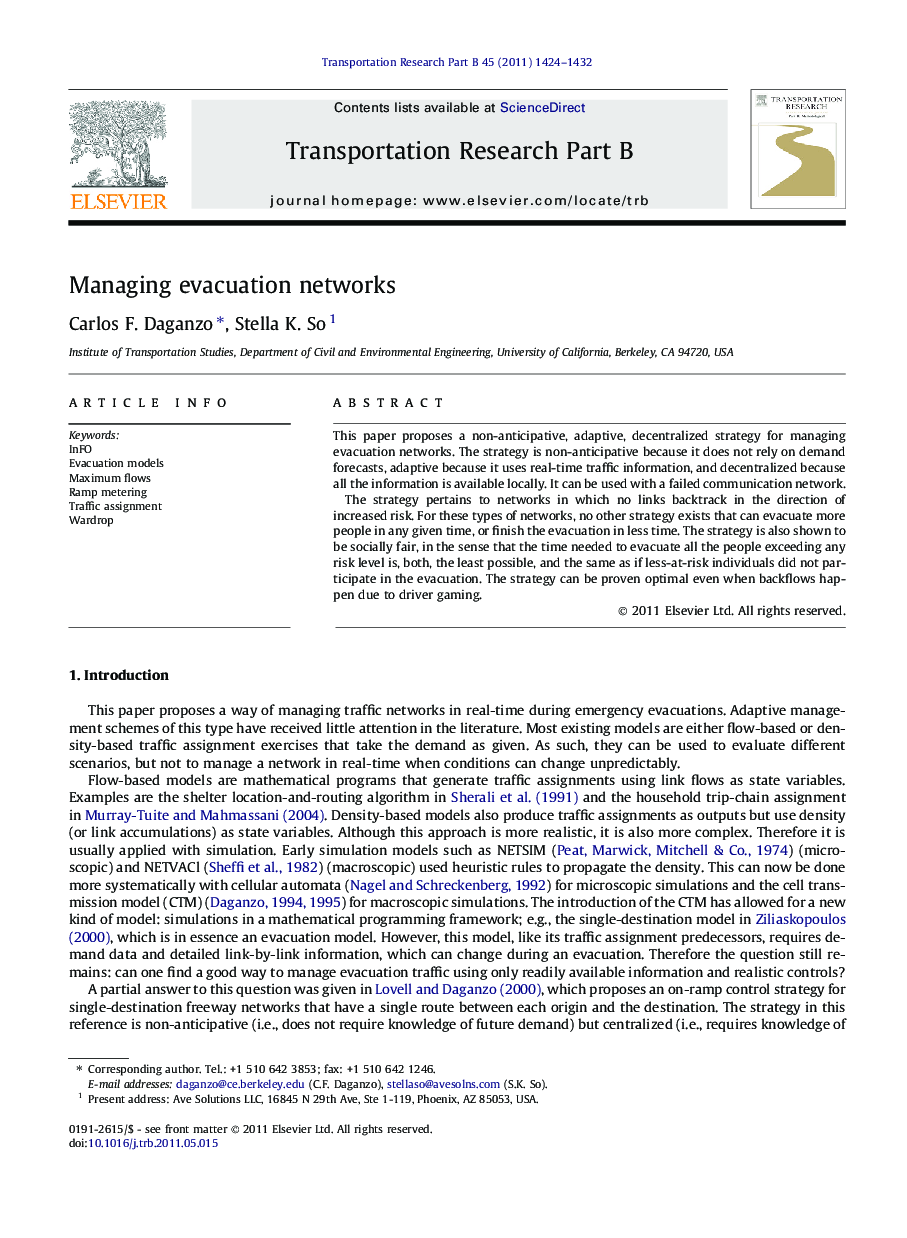| Article ID | Journal | Published Year | Pages | File Type |
|---|---|---|---|---|
| 1132547 | Transportation Research Part B: Methodological | 2011 | 9 Pages |
This paper proposes a non-anticipative, adaptive, decentralized strategy for managing evacuation networks. The strategy is non-anticipative because it does not rely on demand forecasts, adaptive because it uses real-time traffic information, and decentralized because all the information is available locally. It can be used with a failed communication network.The strategy pertains to networks in which no links backtrack in the direction of increased risk. For these types of networks, no other strategy exists that can evacuate more people in any given time, or finish the evacuation in less time. The strategy is also shown to be socially fair, in the sense that the time needed to evacuate all the people exceeding any risk level is, both, the least possible, and the same as if less-at-risk individuals did not participate in the evacuation. The strategy can be proven optimal even when backflows happen due to driver gaming.
► Considered are evacuation networks whose links point in the direction of decreasing risk. ► These networks can be optimally managed in real-time without demand information. ► The proposed strategy is adaptive and decentralized: it only uses locally available real-time data. ► The strategy is fair: all people within a given risk level are evacuated in the least possible time. ► The strategy works well even if people are allowed to choose their point of entry in real-time.
